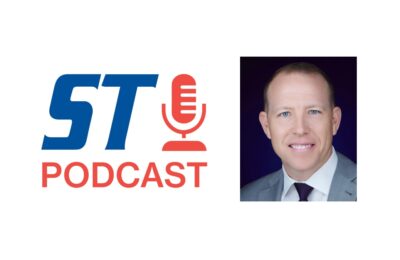
T
en years ago the term “social media” might have meant a good party thrown by the local radio or TV station. Today social media is the way we communicate. For sports organizations, most advertising campaigns will be based around social media and how to connect with fans and followers. With the rise of social media has come new legal issues—or rather old legal issues that now arise in a completely new forum, which can cause legal liability for your organization. You need to be aware of these problems and take steps to minimize the risks. Here are some of the most common issues we see:
Defamation. Companies and organizations are using online tools more and more to communicate with customers and clients. Social media culture often includes a Facebook page or other forum that gives fans and followers the opportunity to post their own comments, or to comment on the posts of others. This can be a very effective tool, but it can also create potential liability for defamation. Defamation is defined as “the action of damaging the good reputation of someone; libel or slander.” It is perhaps more of a problem on the Internet because many people either feel that they are anonymous or that they have enhanced freedom of speech online. Both of these assumptions are wrong. If your employee says something that is false that damages someone’s good reputation, the employee and your organization could be sued for defamation.
Intellectual Property Infringement. The rise of technology has made it much easier for people to reproduce and distribute intellectual property, such as logos, magazine and newspaper articles, music and more. Forwarding an interesting article or a funny video to friends and colleagues has become so ingrained that we do it without thinking. However, intellectual property laws still apply to the Internet. Copyright law provides that the holder of a copyright in a work has the exclusive right to reproduce and distribute that work. When you or your employee distributes a work to others, in most cases there is a technical copyright infringement. While these infringements often go unnoticed, or there is no objection, sharing of copyrighted information often deprives the owner of a sale or royalty, and if this is done on a wide scale, your business or organization could face a copyright infringement lawsuit.
Right of Privacy and Right of Publicity. The number of pictures shared on the Internet is staggering. This is especially true with sporting events. However, there are a couple of legal doctrines that can make the sharing of pictures on the Internet problematic. First, every individual has a “right of privacy,” which means that I have the right not to have my picture shared on the Internet if I don’t want it to be. Second, individuals have a “right of publicity,” which means you cannot use my picture to sell or promote your goods or services without my agreement.
If you have a waiver that people sign at your event or your participants otherwise agree to give you the right to use their image, then you should be OK in most cases. But do you really have their permission? Did the person whose picture adorns your website really agree that you could use his or her photo? If not, you could be violating their right of privacy or publicity, or both, which could open you up to a lawsuit.
What Should You Do? There are three steps sports-event organizers can take right now to limit their liability exposure:
1. Regularly monitor your website and social media accounts. If you see a post that might be defamatory, remove it immediately. A good-faith effort to stop defamation can go a long way toward preventing lawsuits.
2. Educate your employees and volunteers on the use of intellectual property and how not to infringe upon other people’s rights. An ounce of prevention really is worth a pound of cure.
3. Before you use someone’s photo, make sure you have their permission. This can be accomplished by posting a sign at the entrance to an event, or printing a notice on the back of a ticket, or in a signed waiver, but don’t just assume you have permission.
No plan will completely eliminate your liability exposure, but taking these steps will help lower your risk significantly.
Steve Smith is co-chairman of the sports and entertainment practice at Bryan Cave, LLP, in Colorado Springs, Colorado. Smith can be reached at [email protected] or (719) 473-3800.











 Copyright © 2025 by Northstar Travel Media LLC. All Rights Reserved. 301 Route 17 N, Suite 1150, Rutherford, NJ 07070 USA | Telephone: (201) 902-2000
Copyright © 2025 by Northstar Travel Media LLC. All Rights Reserved. 301 Route 17 N, Suite 1150, Rutherford, NJ 07070 USA | Telephone: (201) 902-2000